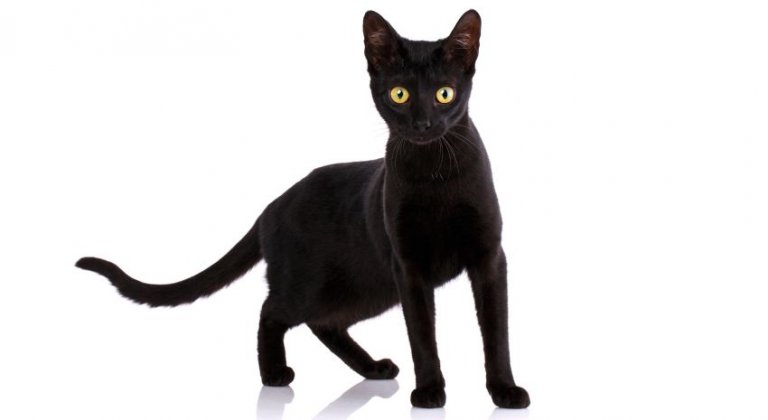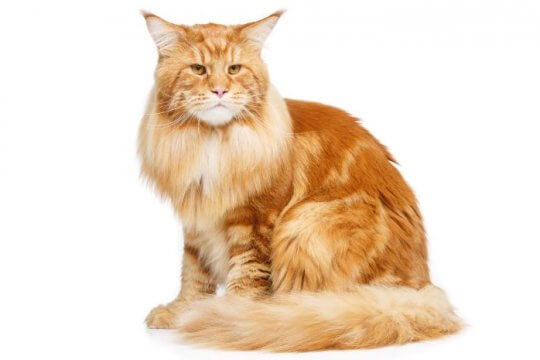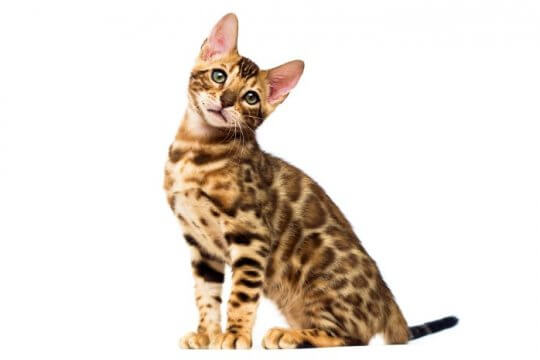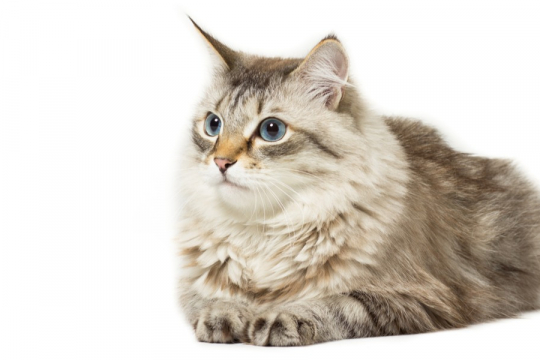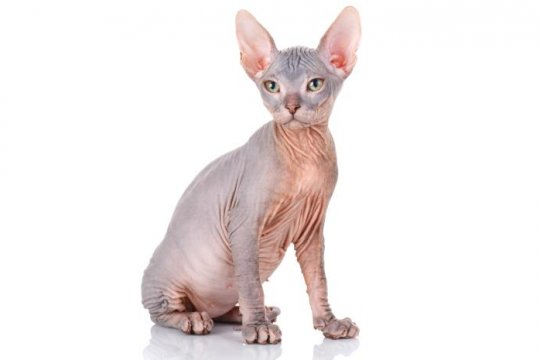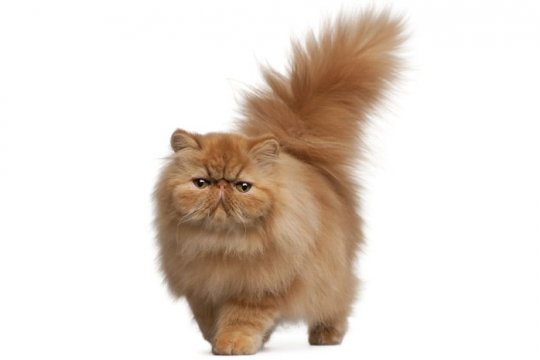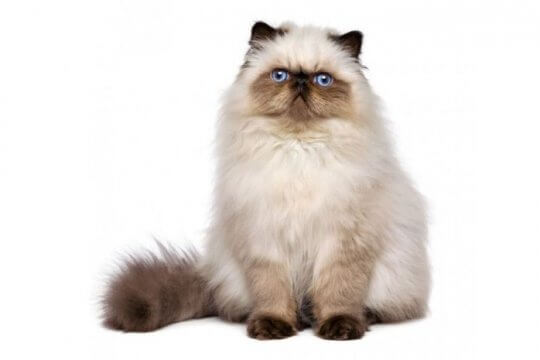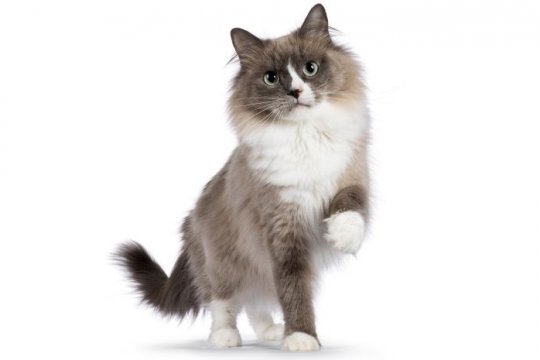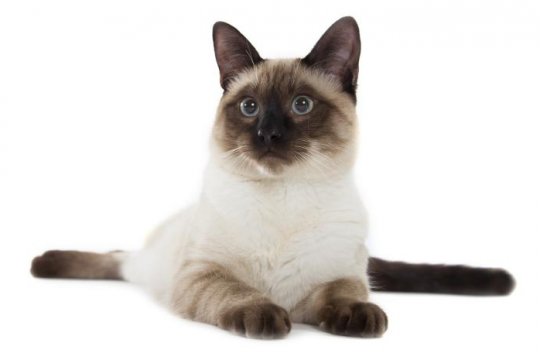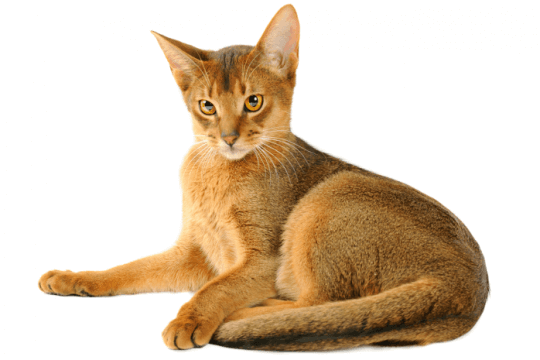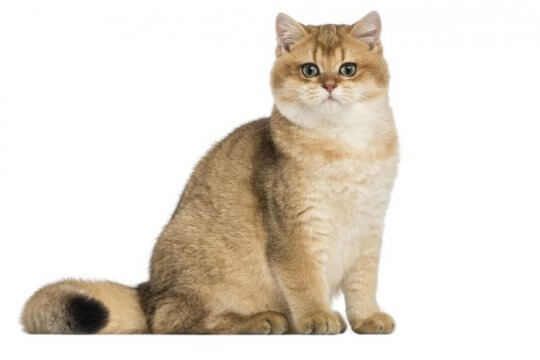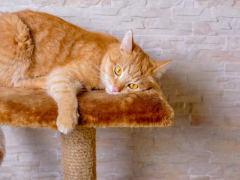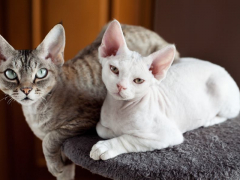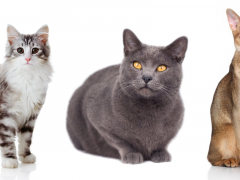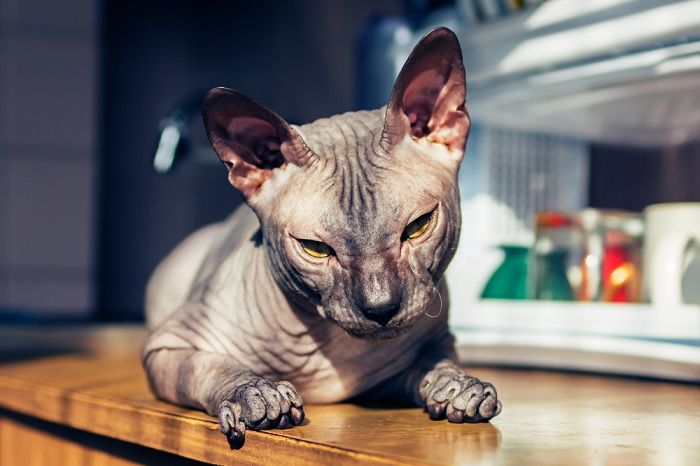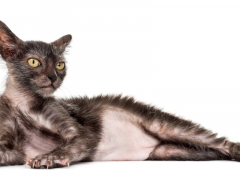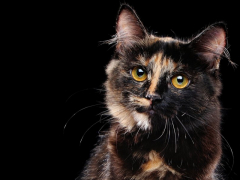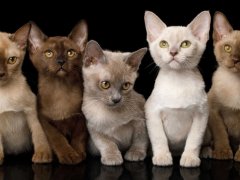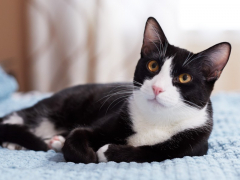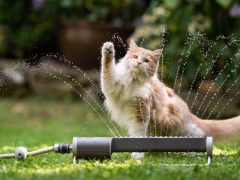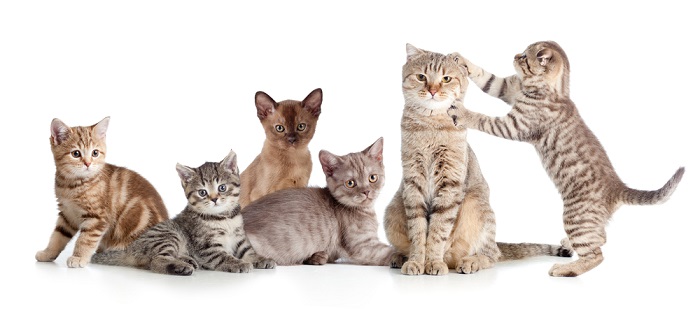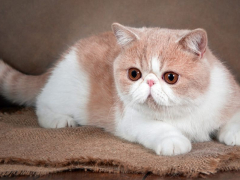Personality and Temperament
Despite its exotic-sounding name, the Serengeti Cat is 100% domestic. These beautiful, playful cats were developed by crossing Bengal cats with Oriental Shorthairs. If you've been on the fence about which breed is your favorite, the Serengeti might be ideal for you as it brings so many positive traits together.
As you might expect, this long-legged kitty is an exceptional athlete that thrives in an atmosphere where activities such as jumping and climbing are supported. The Serengeti cat's ideal family provides plenty of high perches that allow for a great view of everything that's happening, and they understand the importance of keeping important items out of reach. These curious cats do not make a distinction between their toys and your keepsakes, so be sure to keep those collectibles secured. Like the Oriental Shorthair, the Serengeti Cat has nimble toes that are perfect for opening cupboards and drawers. Childproof locks might thwart their efforts at inspecting cabinet interiors, however these kitties are highly intelligent and can sometimes find their way into places that surprise their families.
Besides having the ability to get into everything, Serengeti cats can learn how to turn on faucets, sometimes making it necessary to swap lever style handles for knobs. Luckily, these kitties are capable of learning more desirable tricks. If you ever wanted to play fetch with a cat, the Serengeti might be your ideal companion.
Speaking of companionship, Serengetis do not like to be left alone. These cats thrive on attention, whether it's from their human family members, other cats, or friendly dogs. They do take some time to warm up to new people and new animals, but once they make friends, they're wonderfully loyal and exceptionally chatty.
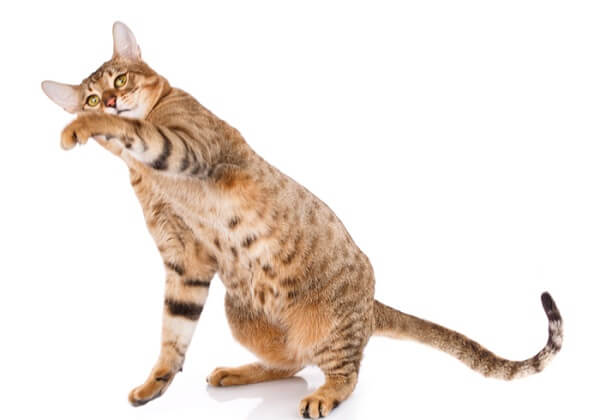
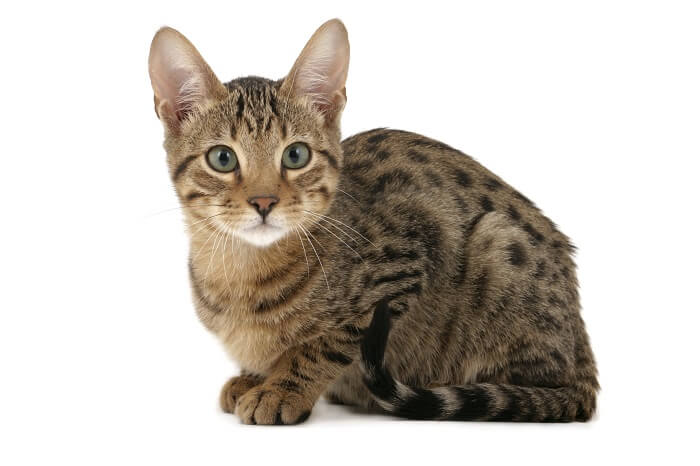
Care
Nutrition
Grooming
Exercise
Health
Serengeti cats do not require a special diet, however it is a very good idea to provide this rare feline with the best possible food. If you opt for a commercial brand, we recommend choosing one that's high in protein and low in carbohydrates, with real meat or fish as the main ingredient.
These cats offer exceptionally easy care thanks to their ultrashort coats. Brush your cat once or twice per week to remove any loose hair and you'll drastically reduce shedding while simultaneously reducing the risk of hairballs.
Serengeti Cats are high-energy felines that require plenty of stimulation and lots of room to play. Be sure to offer plenty of approved play structures and consider building a catio to keep this cat mentally and physically satisfied.
In addition to cat trees, scratching posts, and toys, interactive play is appreciated. Serengeti cats are much like their Oriental cousins in that they can develop destructive behaviors if they aren't given enough attention or appropriate outlets for their energy.
If you like, you can teach the Serengeti to walk on a leash. They’re one of a few cat breeds that like to accompany their people on safe walks through the neighborhood!
Serengeti Cats are generally healthy, with no known genetic issues.
History
Serengeti Cats were developed in 1994 by biologist Karen Sausman of California's Kingsmark Cattery. This is a relatively rare cat breed that is produced by crossing Bengal and Oriental cats. Incredibly, and even though the Bengal cats that are used as foundation stock are several generations removed from their wild ancestors, these kitties have a surprising resemblance to the Serval, with large upright ears and an incredible spotted coat.
It’s very important to note that there is no Serval blood in the Serengeti cat.
In 1995, a project for breed development resulted in the expansion of the Serengeti. These cats are now bred throughout the USA, Europe, the UK, Russia, and Australia.
To date, The International Cat Association (TICA) is the only breed registry that accepts Serengeti Cats.
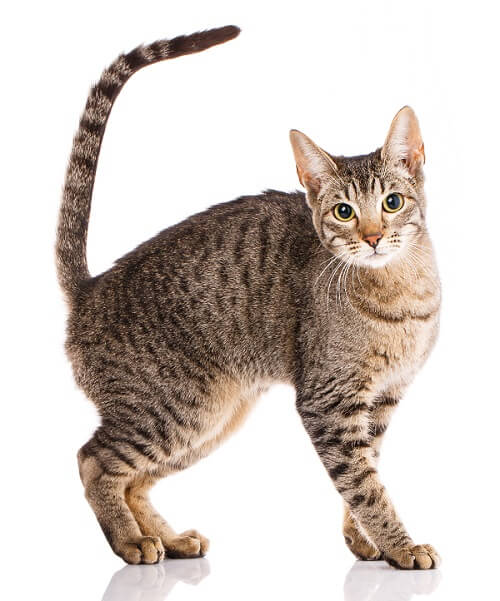
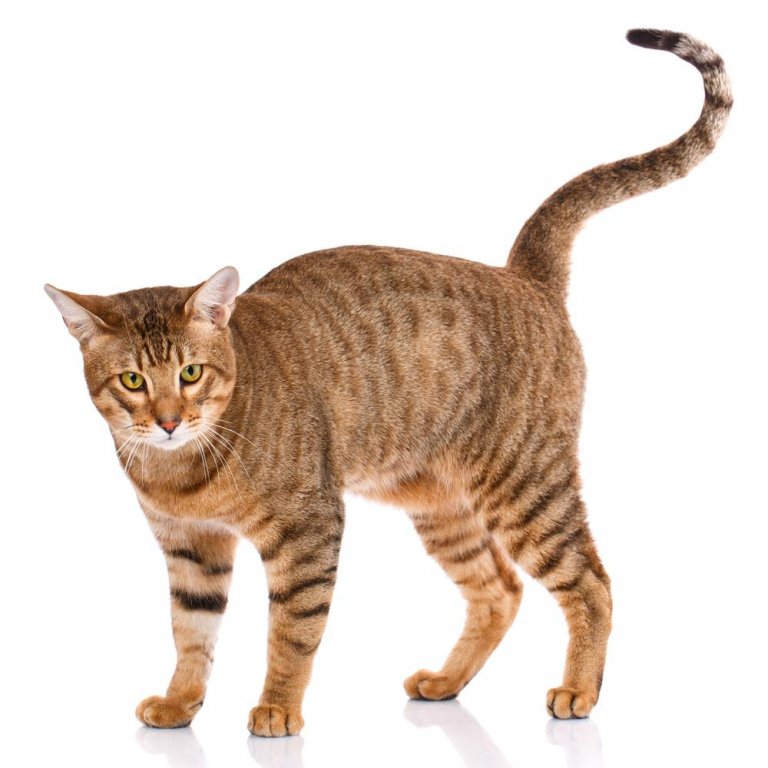
Eyes
Legs & Paws
Tail
The Breed Standard
Body
Head
Ears
Coat
Color
FAQ
How much does a Serengeti cat cost?
Serengeti cats cost between $600 - $2,000.
How big do Serengeti cats get?
Serengeti cats tend to be medium in size. A fully grown Serengeti cat might weigh between 8-15 pounds or more and range in height anywhere from about 8"- 10" inches tall.
How long do Serengeti cats live?
The Average lifespan for Serengeti is 8-12 years.
Do Serengeti cats shed?
Serengeti are short-haired cats. Therefore, they do not shed as much as long-haired cat breeds.
